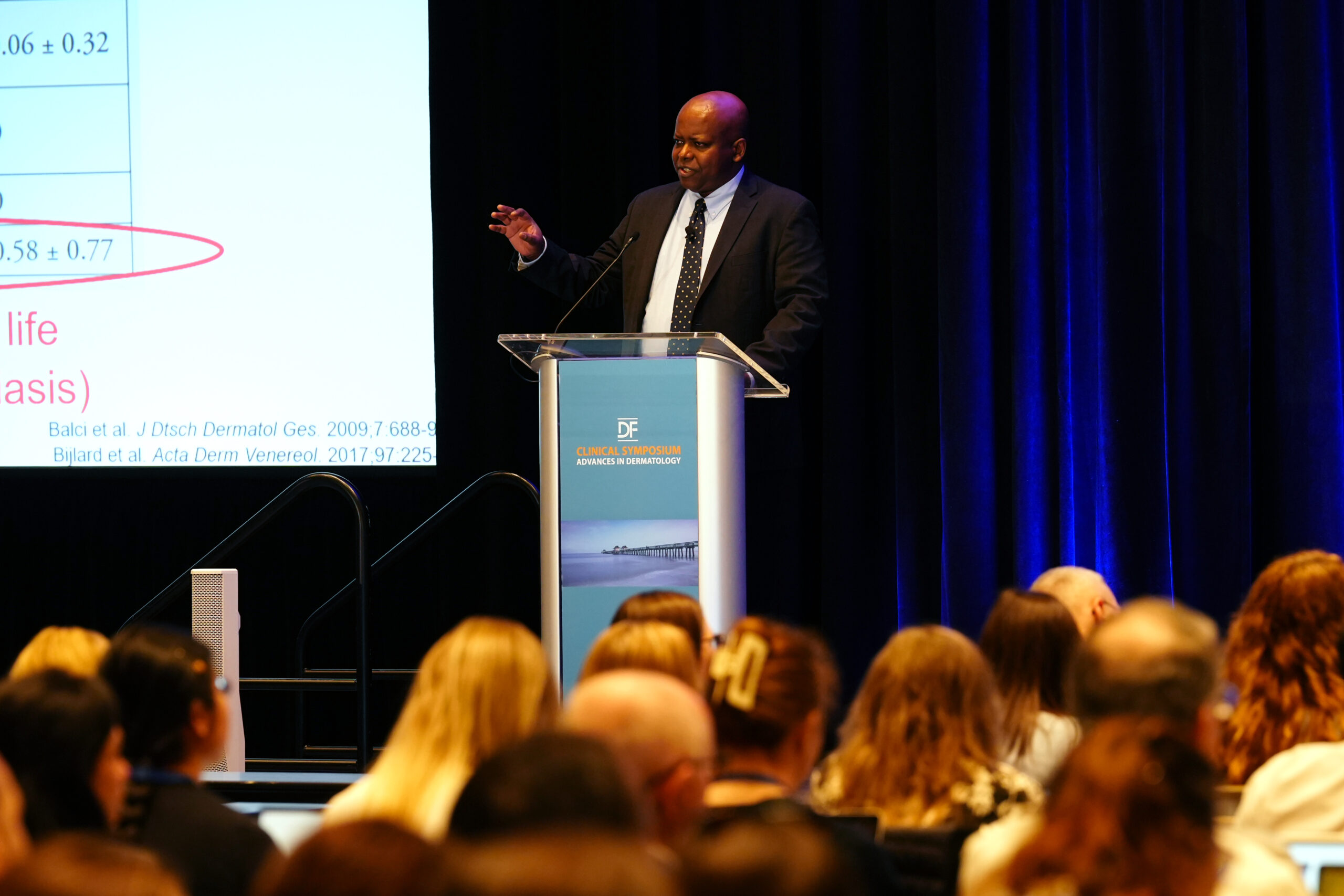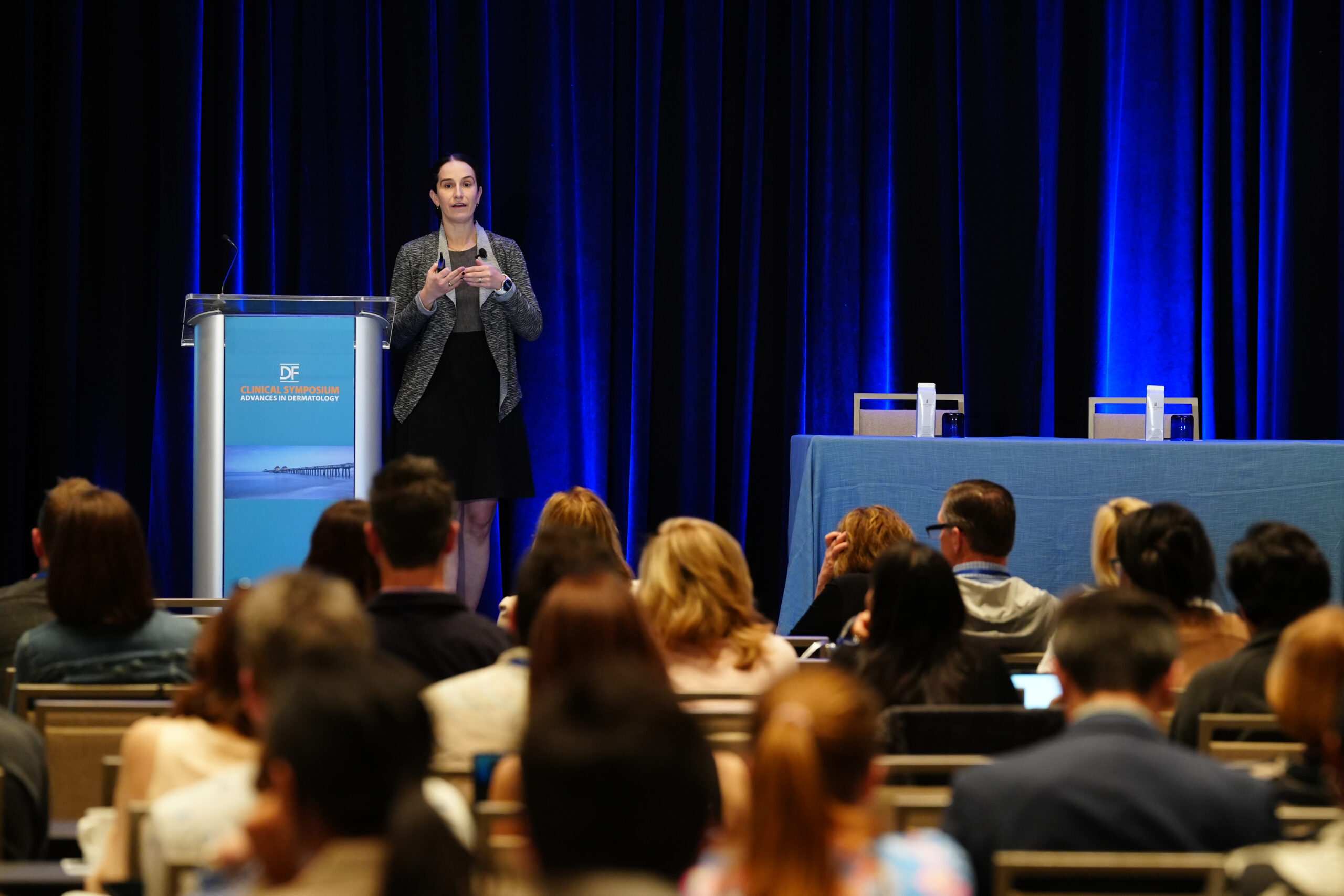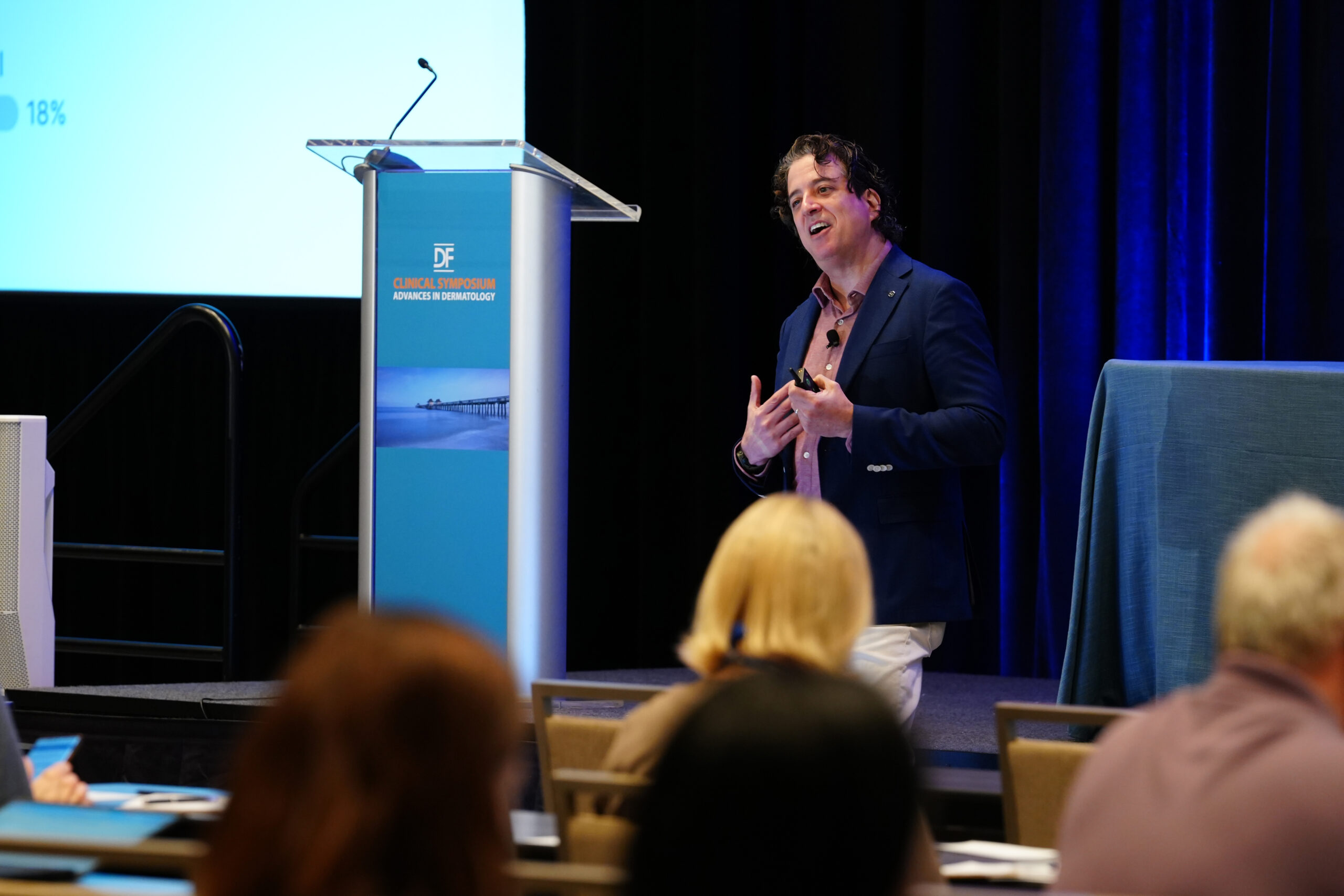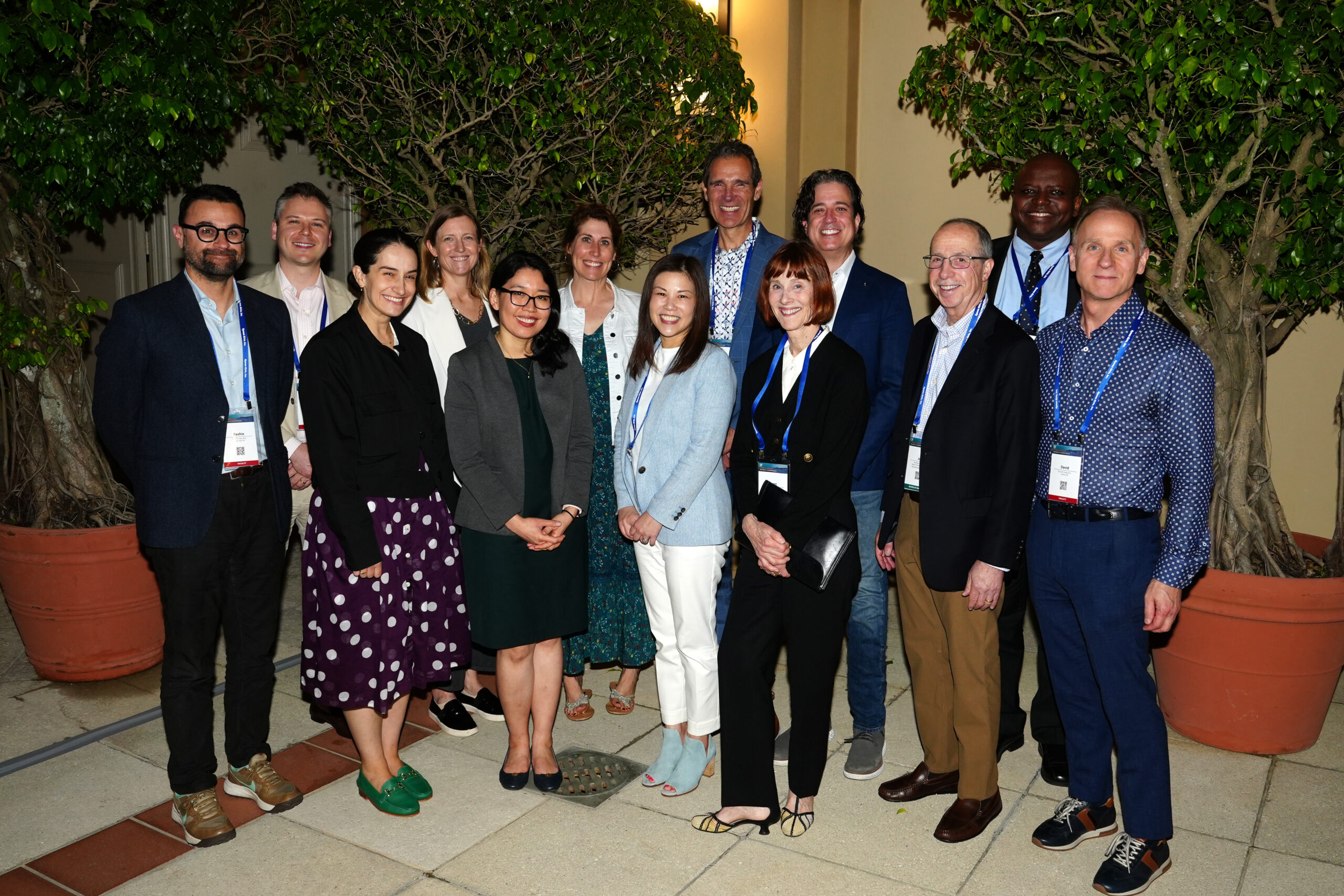The 22nd DF Clinical Symposium took place from January 3 to February 1 at The Ritz-Carlton, Naples. Once again, it was a full house, with attendees eager to learn from leading experts in dermatology—many of whom are former DF research awardees. This renowned continuing medical education (CME) program delivers the most up-to-date and authoritative insights on dermatologic diseases and issues.
Program co-chairs Dr. Yvonne Chiu, Dr. Janet Fairley, and Dr. Jack Resneck Jr. curated an engaging lineup, featuring six dynamic mini-symposia: Updates That Matter, Pearls of Wisdom, A Glimpse Into the Future, Clinical Cases in Action, Beyond the Rash, and Challenges in Skin Cancer.
Several presentation summaries will appear in upcoming issues of Dermatology Focus. In this issue, we highlight key talks from Dr. Douglas Glass, Dr. Victoria Rotemberg, and Dr. Joel Gelfand.

Opening night
Knowledge seekers
Speaker spotlight

On Thursday, January 30, Dr. Glass presented Latest Advancements in Keloid Treatments.
Keloids comprise an aberrant inflammatory fibroproliferative response to wound healing of the skin, characterized by excessive scar tissue that expands beyond the original site of injury. Besides their cosmetic disfigurement, keloids can be itchy and/or painful and can negatively impact a patient’s quality of life. Keloids tend to recur after treatments, including after surgical excision. Because of this, post-operative management plays an important role in the treatment of keloids. Many different treatment methods can be used, either as monotherapy or in combination with surgery or with other treatment modalities. Risk factors such as age, race/ethnicity, location, family history and personal history of keloids that can help dermatologists gauge the likelihood of recurrence and help determine when a multimodal approach is necessary. We will discuss the use of various treatment modalities such as surgery, silicone sheets, steroid-impregnated tape, intralesional injections, cryotherapy, laser, radiation, pentoxifylline, and dupilumab in the treatment of keloids.

On Friday, January 3, Dr. Rotemberg presented How Working With AI May Make Us Better Dermatologists. She discussed recent efforts to look at how AI models perform while working with dermatologists to augment their clinical judgement. In a skin cancer context, for example, AI models might be able to reduce our unnecessary biopsies of benign lesions, helping us care for our patients.

On Saturday, February 1, Dr. Joel Gelfand presented The Role of the Dermatologist in Reducing Cardiovascular Risk in Psoriasis.
Psoriasis is defined by the World Health Organization as a chronic, painful, disfiguring and disabling disease for which there is no cure. Psoriasis is a systemic inflammatory disease that affects over 8 million Americans and patients are especially susceptible to inflammatory (e.g. psoriatic) arthritis, obesity, metabolic syndrome, diabetes, metabolic dysfunction-associated steatotic liver disease, chronic kidney disease, and major cardiovascular events, resulting in a 5-year reduction in life expectancy. Myocardial infarction and stroke are the main drivers of premature mortality in people with psoriasis.
Current treatments for psoriasis are highly effective but have not demonstrated compelling evidence that they lower the risk of cardiovascular disease (CV) and in some cases, may actually further increase risk. AAD/NPF guidelines of care call for dermatologists to educate patients about the risk of cardiovascular disease associated with psoriasis and to initiate screening for traditional cardiovascular risk factors (hypertension, dyslipidemia, diabetes) or refer them to their primary care clinician for screening and management.
In spite of these guidelines, nationally representative data demonstrates that dermatologists rarely screen for CV risk factors in patients with psoriasis and that psoriasis patients lag the general population in having CV risk factors adequately managed, which results in preventable morbidity and mortality. Recent data suggests that care coordination may improve screening of CV risk factors by dermatologists.
Leading the way

Engaged minds
Smiles all around
See you in 2026!

